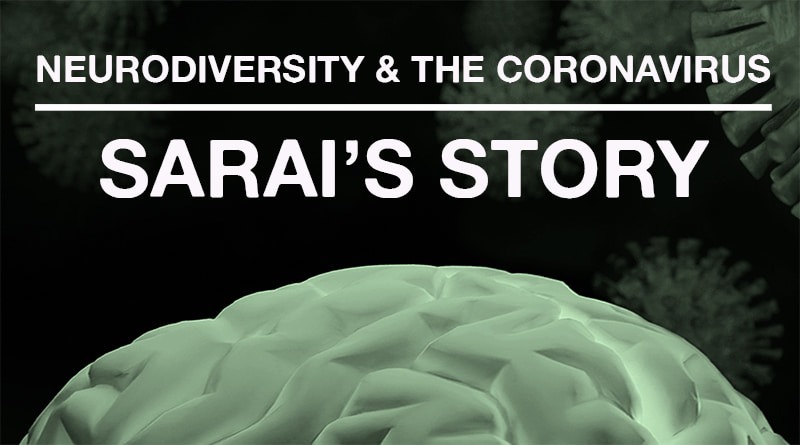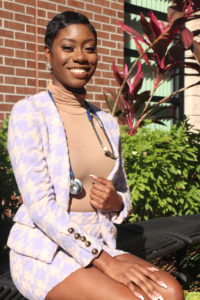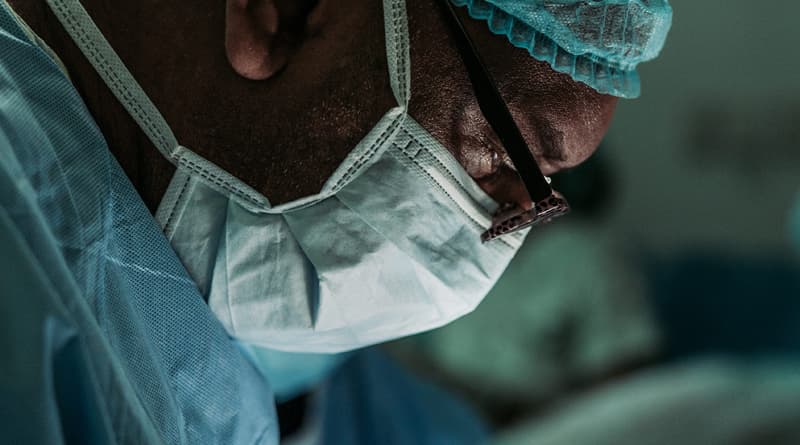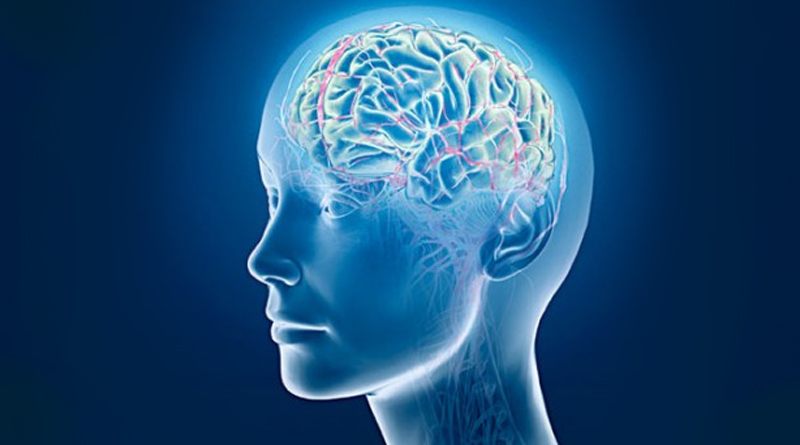
The Coronavirus Pandemic: Sarai’s Journey With Anxiety
The Pandemic: Sarai’s Story:
About the Author:
My name is Sarai and I was born in Miami, Florida and raised in Ft. Lauderdale, FL. I graduated from the University of Central Florida and received my Bachelor’s in Health Sciences Pre-Clinical with a minor in Psychology. I am currently in the process of studying for the MCAT (the admissions exam to Medical school) and I aspire to become a neurologist.
Life Before the Pandemic:
Q: Describe your everyday life before the pandemic hit. Include social aspects, such as school, work, and extracurricular activities.
A: Before the pandemic, I graduated in December, so in the beginning of January, post-graduation, I was taking classes at UCF for an MCAT class. After I graduated, I did come back home to Fort Lauderdale, so I was going back and forth from my mom’s house and my dad’s house, and then going to Orlando. When I was in Orlando, I was staying with my cousins that live there and I would travel to Orlando and I would come back the next day, or I would stay with a friend—whoever was available that I could stay with. I was in multiple places before the pandemic. Now, I’m studying for the MCAT. I had class every two weeks, and the class was at night. It started at 5:30 and ended at 11:00 PM. [The students] spent all their time in there just studying and preparing.
During the week in-between classes, I was mostly at home studying. Outside of that, as far as social, my boyfriend is in DC, so I was often traveling back and forth between DC and South Florida to visit him. Whenever I could, I would go visit my friends and stuff, but that was pretty much my schedule. I was doing a lot of moving around, doing a lot of traveling, interacting with a lot of different people all the time, when I wasn’t at home. Now it’s definitely a bit different for me. Since I haven’t been able to go back since the pandemic hit, it’s been very different not to have that environment to kind of keep me accountable and stay focused to study.
I started applying for jobs and I haven’t gotten any. I applied to be a medical tele scribe, which is somebody who records any patient information, family history information, and any interactions a doctor’s having with a patient. Typing out the conversation, figuring out the diagnosis and all that stuff. Running to input into the patient’s files… I applied for that, but in order to do it, it’s a process that you have to go through, so it takes a while. You apply, and if you get it, you have to take a class, you have to pass two exams, and still do an interview. I did apply for it, I took the class, but unfortunately, because of the pandemic, they weren’t allowing people to come into the office to limit the spread of the virus and also to keep employees safe. I would be doing that same job, but just at home, and unfortunately, there was no doctor’s offices that were within my area. A lot of the offices were just closed due to the coronavirus, so I wasn’t able to get that job. For extracurricular activities, mine was just interacting with people for studying for class, and things like that.
Initial Reactions to COVID-19:
Q: Describe how you initially reacted to COVID-19 and the social distancing.
A: I think it was the beginning of February when I heard about it and we were still having class. So, I was definitely not taking it as seriously because what was in the media was, it was just a virus, kind of like the flu, maybe a little bit more contagious, and if you got it, you had these symptoms of coughing, sneezing, fever… things like that. And [if you got it] you would just stay home for 2-14 days, self-quarantine, and also self-medicate. You would take the normal flu and cold medications that are over the counter. I didn’t take it seriously. I thought that this will pass, you know? It’ll be fine. People will be fine, but once then it came out and people had to do the social distancing.
I initially thought I didn’t have a problem with the social distancing—I just didn’t think it would have to last as long as it did. I thought that [the media] was taking the necessary precautions for what it was they were saying about the virus in order for it to be socially distanced for so-and-so amount of time, but it wasn’t going to be something where it would last for so long. When I first found out about it, my family and I had a trip planned to Italy. I was actually supposed to be here this week. We were supposed to leave on May 31st, and we were gonna come back June 9th. So, in my mind, I was thinking we’ll be fine by the time the trip was gonna come, so it took a long time for [my family] to cancel our plane tickets and hotel. We actually didn’t do that until a month ago. I felt like, by then, that was months ago so we should be fine and still be able to go on our trip. We shouldn’t have to social distance for that long—for too long.
When it came out about Italy and how they had such high numbers and everything in the country started shutting down, that’s when I realized that this is a lot more serious than I had anticipated and it was disappointing because I really hoped that here [in the United States] we were taking all the necessary precautions to keep everybody safe and wat the media was telling us about the virus and what they were doing. Evidently, it just wasn’t enough, so that was disappointing. Definitely, in the beginning, I didn’t think it was going to be this bad. I didn’t believe it would be as serious as it has become.
Life Changes & Adaptations:
Q: In what ways did your life and schedule change as a result of the coronavirus?
A: Right now, I would say that it has changed not too drastically. Like I said, I was doing a lot of traveling back and forth from places, but, for the most part, I would say that I didn’t stay at home most of the time because I was studying. It changed only in the sense that now I know that I can’t go see my friends when I want to, which is then hard. Studying definitely has been very difficult because me going to class is what kept me accountable for staying on top of what I need to do. As far as me applying for medical school, that has been changed completely. I was supposed to take the MCAT April 25th but I’ve had to change it so many times. Now, I’m taking it September 27th and medical applications are due in September, so now I’m gonna push back my time and I’m gonna take another gap year and apply at the end of next year because I’m not able to get everything together that I need for my applications and time. I haven’t even taken my MCAT yet because of the coronavirus. So it’s changed in that way and it’s been a big adjustment just having to change life plans and also work. I haven’t been to work in all this time and my original plan was to have a job by now. Now I’m trying to figure out other ways to make money in the meantime until thins start getting back to normal because a lot of places aren’t hiring. Your life is kind of on pause right now, you know?
Q: What have you had to do in order to adapt to these circumstances?
A: To adapt, I’ve definitely been trying to put myself on a schedule, even if it’s just for a couple of hours. I’ve been trying to make myself get up in the morning (the best I can), and get dressed, even though it’s easy to lay around at home all day and you don’t really have much to do. It’s easy to get comfortable and just not do anything…laying around in your pajamas for most of the day. I try and be productive in any way even if it’s kind of like looking for jobs, studying for a little bit, or reading a book. I’ve been doing a lot of cooking and I’ve been seeing a therapist through Telehealth—talking to a therapist virtually because I am an anxious person. I have anxiety, so being confined in a house has been a struggle because I get very restless and I start to overthink. Things in my mind get a little scrambled—get a little crazy. So, I’ve been regularly trying to talk to a therapist and maintain my mental health in the midst of everything. I think between making a schedule and maintaining my mental health by my therapist, and also by doing my hobbies like drawing and painting. Things like that. Keeping myself occupied and talking to my friends really helped me not go stir-crazy. It’s a challenge sometimes, but when I stick to my schedule and actually do those things, it helps a lot to keep me sane and me and my family together.
Anxiety & the Coronavirus:
Q: How has the coronavirus affected your anxiety and/or how has your anxiety affected how you are dealing with the coronavirus?
A: I would definitely say that every day is different, but prior to getting a therapist, my anxiety had heightened. That’s why I actually started going back to therapy a few weeks ago. But before then, I was very restless. I’d find myself pacing back and forth in my room or wherever I was. I started to notice that I was starting to get those frenzies with my anxiety. Now that I’ve started to see somebody, it’s definitely gotten a lot better. Social distancing and being quarantined has made me really kind of assess a lot of things, like how to cope using better coping mechanisms in order to help me get through day-to-day life and to not allow my anxiety to take me over, in a way. It was so hard to just function regularly when I was that anxious. It was really hard to stay on that schedule I was trying to enforce on myself because, the schedule, I set it to help me. My anxiety was kind of causing me to be so hard on myself. I was kind of freaking out because I wasn’t doing what I was set out to do. Talking to a therapist really helps me to put things in perspective and to handle my mental health.
I think, in some ways, the pandemic is not always good, but for the most part, I’m definitely learning a lot about how to deal with life, because of the coronavirus. In some ways, the pandemic is kind of forcing us to slow down. We’re not able to go out and do all these things; we’re not able to interact with people who we were interacting with before. It kind of makes you take a moment to step back and think about all things–about yourself. It’s made me really self-reflect and really assesses a lot of the things that I deal with. So even though it’s not always a good day, it’s a learning experience.
Coping With COVID-19:
Q: What other coping mechanisms have you been using in order to deal with these strange times?
A: I’ve been trying to draw as much as I can and I’ve also taken more time out to paint because those things really help relax me, calm me down, and bring me back to Earth. I’ve also been cooking a lot. Cooking wasn’t necessarily something I enjoyed, but, for some reason, since the pandemic, I found some enjoyment in doing it, so I have been looking up recipes online and taking the time out to try different foods. I’ve come to really love doing that. Also, I’ve been trying to write down positive aspects, affirmations, and just to keep myself in a positive frame of mind. It’s honestly been helping. I think that the more that I do it, the more I get into the practice of going it, the better I will be at handling everything that’s been going on. One thing I’ve also been doing is exercising, and I have not enjoyed exercising before. When I was at UCF, I’d go to yoga sometimes, but I had to stop doing that once I started getting really busy. Now that I’m not as busy anymore, I’ve taken the time out to do some yoga sometimes and even do more regular exercise, which I HATED doing before. It’s not even that bad to me now. Now, I take walks. I never did that (laughs).
Life Lessons & Advice:
Q: What have you learned about yourself and the world around you from these circumstances?
A: What I’ve learned about myself is, even though there’s things about me that I still need to work on, that’s not a bad thing. That’s just personal growth. It’s never something to look down on, you know? I’ve learned that, regardless of the circumstances, I always try to figure out how I can better myself, and what I can do to continue to reach my goals and accomplish things because it’s been very hard to stay focused and stay on a schedule, but I still manage to do that in some kind of way. Now, it doesn’t come easy all the time, but I still manage to find a way to get things done. That’s a good thing that I’ve learned.
And, about the world around me, it’s really crazy… especially with the Black Lives Matter protesters. It’s showing the true colors of modern people. Health equipment is really expensive, and I’m just thinking about the nurses and the physicians. They’re on the front lines fighting the coronavirus, trying to save people’s lives, and they’ve been begging for PPE and ventilators for months. They haven’t even been able to get it, and this is people’s lives on the line! Police are getting riot gear while there are doctors who have been told that they’re not able to get masks, face shields, and gloves—the things that they need in order to protect themselves from a pandemic that we’re currently in. It’s showed me that people of whatever career path have to really work to go out because there are actual people that care about what’s going on… it’s really eye-opening, I think.
Q: What advice would you give to someone undergoing similar circumstances?
A: I would tell them to definitely take time out for themselves to turn off social media, turn off the news, and have time to be in the present moment. Take time to just breathe and relax and take in what’s around you. I think it’s very important that people understand that right now, you don’t have to be constantly doing something because I definitely felt that way. I felt like doing something—I need to be doing something, but at the end of the day, you have to remember we’re dealing with a pandemic. Outside of what’s going on in the world, people still have their own personal issues and personal things that they’re dealing with that might have been there before the pandemic. It’s important to take care of yourself. I think that, with everything going on, there are so many issues that have been pounded on top of people, and it’s really become overwhelming. Mental health is the number one thing that we should just keep in mind, so you should turn off everything (laughs), remove yourself from the news, remove yourself from all the craziness going on. Self-reflect, relax, and find ways to make yourself happy, make it through the day, and just take it day-by-day.
Story by: Sarai
Transcribed by: Julia Futo
Interviewed on: June 3rd, 2020
Julia Futo was born on August 5th, 1999, in Fort Lauderdale, Florida. She faced difficulties early on in life with trying to perform everyday tasks. Before she was five years old, she was diagnosed with two learning disabilities: Encephalopathy and developmental coordination disorder (DCD). She struggled in school for a long time, but that changed when she took journalism in high school and learned how to become an advocate. She is currently in college and hopes to help others find their voices.





